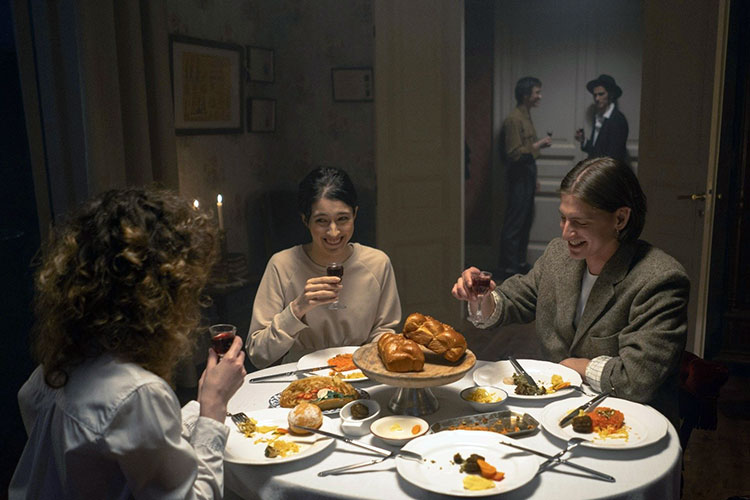Addressing Cultural and Religious Differences in Divorce Proceedings

Magnuson Lowell Blog
Each week we post a blog about relevant legal issues. Glance through our various topics to learn more about a particular legal situation.
These articles are for limited informational purposes only and are not, nor are they intended to be, legal advice. You should not rely on this information for your case and should consult with an attorney for advice regarding your individual situation.
Most Recent Posts ...
Posted on: 4/14/2025
Posted on: 4/7/2025
Posted on: 3/31/2025
Posted on: 3/24/2025
Search All Blog Posts
Blog Post Archive Categories
- Reconciling After a Divorce Filing
- Dividing Retirement in Divorce - Do I Need a QDRO?
- Options for Dealing with Real Estate in Your Washington State Divorce
- Positive Thoughts After Losing a Family Law Motion
- Supervised Visitation for Washington Parenting Plans: What You Need to Know
- Filing for Immediate Restraining Orders in King County
- (Redmond/Criminal Defense) Time Matters for a DUI
- (Redmond/Criminal Defense) Field Sobriety Tests - What Not to Do
- (Redmond/Criminal Defense) - The (Redmond/Criminal Defense) - The Ability to Remain Silent
- Battling Father Time: Crafting Your Legacy with Precision
- Tips for Talking to Your Family About Your Estate Plan
- How to Choose Your Personal Representative for your Will
- What is a Trial Continuance in Washington State?
- Renewing a Domestic Violence Protection Order in Washington State
- Little Known Washington Driving Laws
- Addressing Cultural and Religious Differences in Divorce Proceedings
- What Happens to Your Pets in a Divorce?
- Steps to Take if You Suspect Your Spouse Is Hiding Assets
- Why Expediency is Important After Your Car Accident
- Understanding Independent Medical Examinations (IMEs) in Washington State
- It only takes 3 seconds...
- Gotta love our court system!
- (Redmond/Crazy Lawsuit) The Walking Dead: or Not!
- (Redmond/Crazy Lawsuit) Here Comes Football - and Litigation
- Honoring Our Heroes: A Thank You to All Who Have Served!
- Happy Halloween from Magnuson Lowell
- 10 Tips You Need To Know Before Getting On A Motorcycle
- Top 10 Tips You Need To Know Before Getting On A Motorcycle
- Top 10 Tips Riders Need To Know Before Getting On A Motorcycle
- In a Car Collision...Now What?
- Views on child-rearing and discipline
- Expectations about spousal roles and financial responsibilities
- Decisions about religious education for children
- Approaches to resolving conflict (e.g., mediation vs. litigation)
- A religious divorce does not replace the legal divorce process in Washington.
- Agreements made under religious principles must still comply with Washington’s requirements for enforceability.
- Parenting plans must reflect the best interests of the child, even if they differ from religious expectations.
- Mediation: A neutral mediator familiar with cultural sensitivity can help parties find common ground while honoring their beliefs.
- Collaborative divorce: This approach allows spouses to work together outside of court, often with support from culturally aware professionals.
- Tailored parenting plans: Parents can create customized plans that include religious holidays, practices, and educational preferences - as long as they align with the child’s best interests.
- Take time to understand your background and values
- Communicate with empathy and awareness
- Help balance cultural expectations with legal requirements
- Ensure your voice is heard in the legal process
Addressing Cultural and Religious Differences in Divorce Proceedings

Divorce is a deeply personal process, and when cultural or religious values are involved, it can become even more complex. In Washington State, the legal system provides a framework for dissolving a marriage, but it does not always reflect the customs or expectations of a couple’s cultural or religious background. When these differences are significant, they can impact how each party approaches issues like parenting, property division, and support.
At Magnuson Lowell, P.S., we understand the importance of honoring our clients’ values while ensuring their legal rights are protected. Here’s how cultural and religious considerations can influence divorce proceedings—and how to manage them with care and clarity.
Understanding the Role of Culture and Religion in Divorce
Cultural and religious traditions can shape how spouses view marriage, family roles, and divorce itself. In some communities, divorce may carry a strong social stigma, while in others, it may involve religious obligations or community expectations. These values can affect:
Respecting these perspectives is important, but it’s also essential to understand how Washington law may differ from personal or community beliefs.
Washington Law vs. Religious Customs
While Washington courts recognize the importance of cultural and religious backgrounds, all legal decisions must be made under state law. For example:
Courts may consider religious or cultural factors when appropriate, but they will not enforce traditions that conflict with legal standards or public policy.
Resolving Disputes with Respect and Flexibility
When cultural or religious differences create conflict in a divorce, the following strategies can help reach more respectful and amicable outcomes:
Flexibility and open communication are key to resolving disagreements in a way that respects both parties’ identities.
The Importance of Cultural Competence in Legal Representation
Choosing an attorney who is sensitive to cultural and religious issues can make a significant difference in the outcome of your case. A culturally competent lawyer will:
Even if cultural or religious traditions are not legally binding, they are personally meaningful. Having an attorney who respects that can help you feel more confident and supported.
Work with an Experienced Washington Divorce Attorney
At Magnuson Lowell, P.S., we recognize that divorce is never one-size-fits-all. If your case involves cultural or religious considerations, we are here to help you navigate the legal process with dignity and understanding. We offer free telephone case evaluations to discuss your situation and explore the best path forward for your needs and values. - Call Today 425-800-0582




